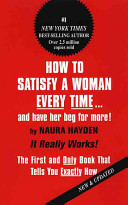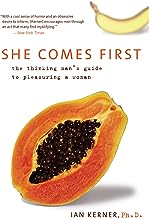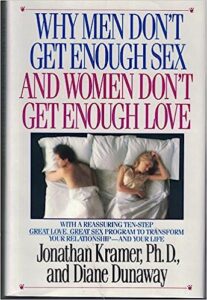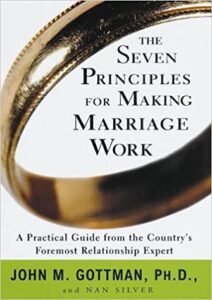One of the most important decisions most people will ever make is who to marry, if anyone. A good marriage can be very fulfilling, so if you marry, you want it to succeed, make both of you happy, raise a family if you both choose to do so, and last a lifetime. How do you do that? Some marriage counselors have much more than their share of broken marriages, and I have had two marriages and two divorces, but it’s true that you learn a lot more from your failures than from your successes, so I’m presenting my analysis. But first let’s look at a few of the grim statistics on marriage in the United States:
o 50% of married couples will eventually divorce
o 60% of second marriages fail
o 20-25% of men and 10-15% of women in a marriage have had an affair
o 45% of people in marriage say they would not marry again
In an interview with Longevity magazine many years ago, actress Zsa Zsa Gabor was asked, “do you think you’ll ever meet the right man?” She replied, “I was very lucky because I find eight times the right man.” Of course we want our first and only spouse to be the right man or woman. My experience with marriage/relationships comes from my two marriages, two divorces, living with a girlfriend for three years and reading everything I could get on marriage and relationships so that I wouldn’t ever have another very painful divorce. Of course you can’t help being attracted to who you’re attracted to, however, at some point in your relationship you should take a hard look ( a “gut-check”) at your loved one. Here’s my advice for what to look for in considering a lifelong mate:
1. FRIENDSHIP: It’s very helpful if you and your intended are best friends before you marry, to the extent that you both can be yourselves and be able to joke around with each other and have fun in each other’s company.
2. HONESTY: Being honest, but tactful, with each other is very helpful. Making “I” statements can make this possible, so you might say, “I think that…” rather than imperial statements such as, “that’s bad” or “that’s good.” Be diplomatic in your honest communications with each other, and not lie…but do not be brutally frank or unkind. Why is being diplomatically honest important? Because it fosters trust and intimacy. Look for honesty in a potential mate.
3. RESPECT: Respect each other’s feelings about people, ideas, beliefs, attitudes, and interests. Of course, the more of these you have in common, the better, but you really need to respect your significant other’s views even though they may be very different from yours. Does your spouse-to-be respect your feelings?
4. RESOLUTION: Resolving differences amicably is something that John Gottman PhD, marriage researcher and counselor, advocates as the most important skill for maintaining a good marriage. My first marriage lacked this and was the underlying culprit responsible for its failure. To check this out you need to be going together long enough to have at least one good fight or big disagreement to see if you both can resolve it amicably (and if not, to work on learning how to do it). This ability I believe is more important than almost anything else.
5. FIVE to ONE BALANCE: Dr. Gottman said “a healthy balance between positive and negative feelings and actions toward each other…really separates contented couples from those in deep marital misery.” Further, “if there is five times as many positive interactions as negative between couples, the marriage is likely to be stable over time.” Dr. Gottman then specifies that negative interactions are criticism, contempt, defensiveness, and stonewalling. Use this in determining how well you and your significant other might get along as husband and wife…look at your positive and negative interactions…is there a healthy balance? If not, modify your behavior so that it becomes healthy.
6. LOVE and SEX: Of course these are very important…in fact, I heard a marriage counselor comment that, “if the sex is good, the marriage is usually good.” You can find good lovemaking technique in my “Older Men Make Great Love Again” post on my blog, MIkeRussoExpose.com. Love is much more complicated than sex and needs a book (or at least a blog post) all to itself.
7. SIMILARITY: The more you and your spouse-to-be have in common, the better your chances for a successful marriage. Religion, ethnicity, economic class, culture, interests, etc. Even if you’re a perfect match, there’s still no guarantee of a happy and lasting marriage. My first wife and I were almost identical to the extent that I often thought that had I been born a woman, I would have been born as her. Yet 17 months after we were married, she divorced me.
CONCLUSION
There are many other good qualities that you hopefully will see in your spouse-to-be, such as forgiveness, patience, unselfishness, caring, and keeping lines of communication open to you.
Even if you do everything well, there’s still no guarantee that your marriage will succeed. To illustrate, Ellen Kriedman states in her book, Light her Fire, “while dating, a man usually has no problem talking, because he has a goal in mind. He wants her to find him desirable, so he’s charming, witty and pays a great deal of attention to what she’s saying. He wants to discover what her needs are so that he can fulfill them. As a result, he has a woman who finds him irresistible. Once this happens and she’s his forever, he stops talking. In his mind, there’s less need to talk and listen to her than there was in the beginning.” And, of course, the female partner might equally change after marriage, but in a different way.
Finally, it’s certainly a lot easier, after discussing your concerns with each other face-to-face, to stop dating someone whom you think you would be incompatible with, rather than marrying him or her and eventually getting divorced after a few years of marriage and a few children. It’s far better to be single a little longer rather than getting married quickly and being miserable because your prince or princess turned out to be a frog, con artist, spouse abuser, philanderer, alcoholic, drug addict, gambling addict, gold digger, etc. Whatever your problems, things can always get a whole lot worse. If you love someone even though he or she has serious problems, it’s important to consider what your heart says, but your mind should make final decisions…and keep in mind that few spouses are better companions and more loyal friends than homeless stray cats or dogs that might visit your home for food and water, or that you find at a shelter, so you might want to consider adopting a stray for companionship and take your time before getting married.





